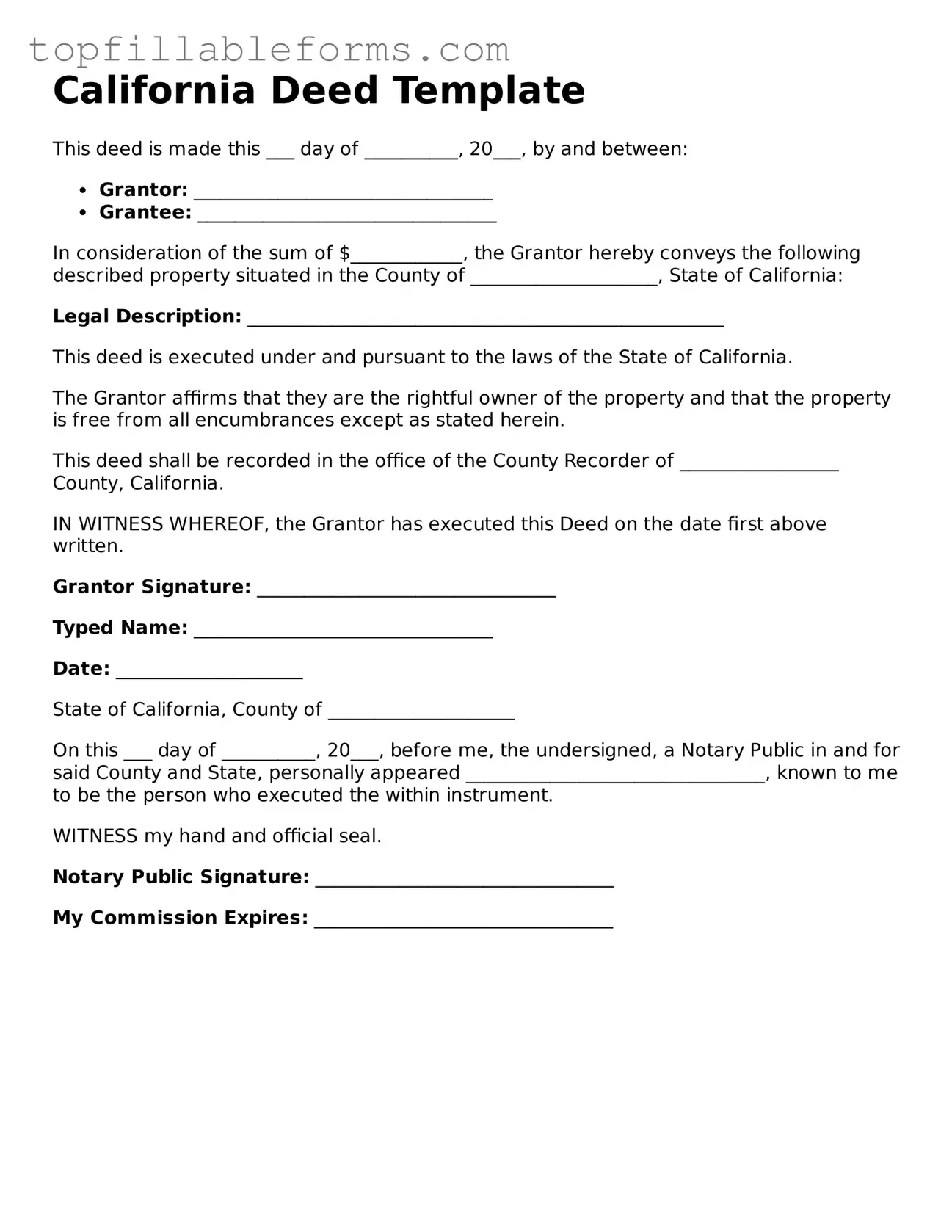Attorney-Verified Deed Template for California
A California Deed form is a legal document used to transfer ownership of real estate from one party to another. This form is essential for ensuring that the transfer is recognized by the state and is legally binding. Understanding how to properly complete and file this form is crucial for anyone involved in a property transaction in California.
Open Deed Editor Here

Attorney-Verified Deed Template for California
Open Deed Editor Here
Finish the form now and be done
Finish your Deed online by editing, saving, and downloading fast.
Open Deed Editor Here
or
▼ PDF File
